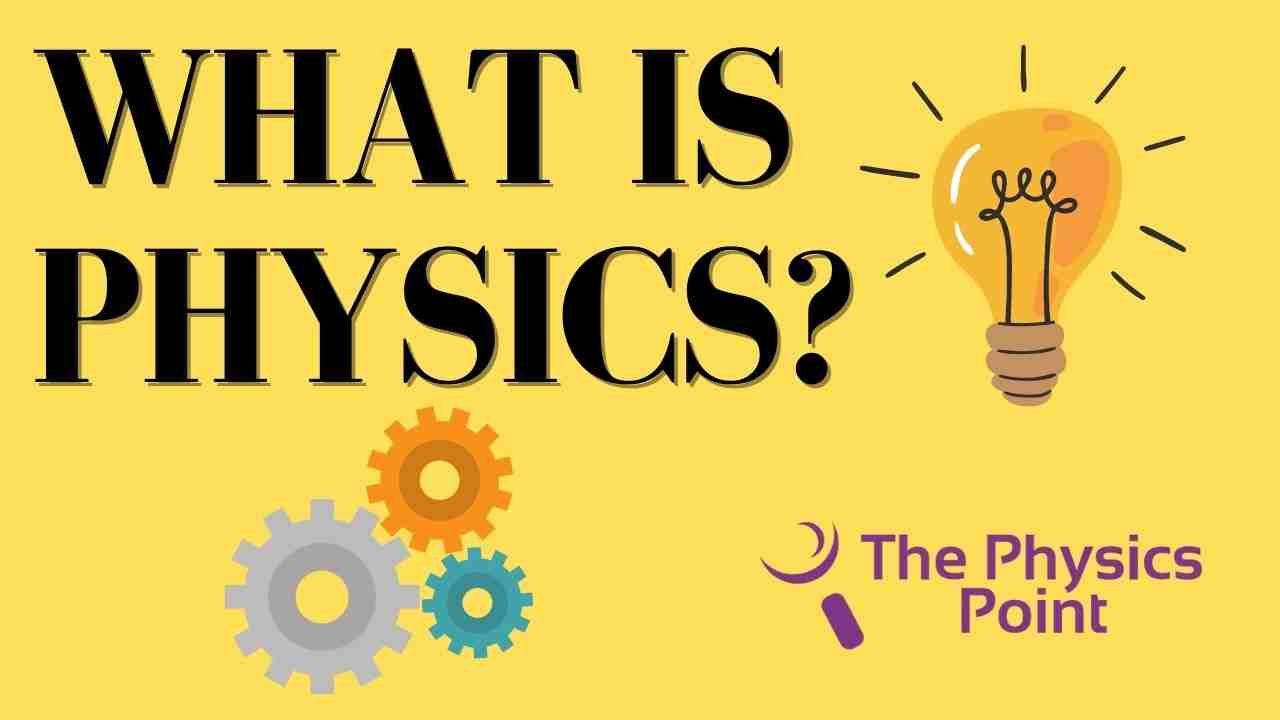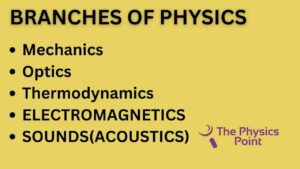What is Physics? Definition, Branches, Importance and History

Hello, A very warm welcome to the readers of the website – The Physics Point. Today we will talk about physics and also We should understand that what is the definition of physics. It is a fundamental and vast subject of science. In today’s era using different types of gadgets machines and vehicles and many more things which are dependent on electricity or energy all are the gifts of Physics. It is a very interesting and fascinating subject but a little typical other than educational or normal subjects.
People, do you know that many inventions and discoveries are the gifts of Physics in the favour of human welfare? But there are some evils also that we should not create harmful objects that have the potential to destroy the whole human Civilization in a very few seconds like atom bombs or hydrogen bombs. In today’s article, what is Physics, you learn many things like what physics study, what is physics in high school, what is physics in science, etc. So without wasting much time let’s start today’s article.
What is Physics’s definition?
Hey, people do you know what physics study and physics mean? Most of you listen to the subject from lower classes to higher classes. It is a technical subject of the scientific era. If we talk about the definition of the subject or what is physics in simple words, Physics is the study of materials and energy forms and it is an ancient and very vast field of Science. And you must everyone know what is Physics in science.
The origin of the word physics comes from the language of Greek and the meaning of Physics in the Greek version is knowledge of nature normally we can state that it is a field that aims to analyze and understand the conceptual and analytical phenomena of the universe. The one who understands physics and works for discovery in the field of this science subject is known as a Physicist.
History of Physics
Physics is a fundamental subject of science. It originated from natural philosophy. From the 11th – century physics had become a more dominant subject but not significant because of the very few discoveries. Many mathematicians and physicist work on the subject to make many useful discoveries for human welfare. Albert Einstein and Sir Isaac Newton Galileo are very famous scientists in the world of Physics.
Branches of Physics
As we know that it is a past subject of science so to make the understanding easy, Physics is divided into many sub-subjects which are described below in a very precise manner.
Mechanics
Mechanics is the study of what we observe distinctly like the motion of the body, the energy gaining or losing or transferring from one body to another body, and many things In the manner that how to body interacts with the surroundings with each other. Again mechanics is also divided into sub-branches of mechanics – Quantum mechanics and classical mechanics.
In quantum mechanics, we have to study the atom,s molecules, and the interaction of the electron proton and neutron and the other atomic particles. Here we come to learn, how atoms and molecules are bonded and held together for the existence of any object or body.
In Classical mechanics, we followed the same principle as quantum mechanics but at a higher level and large scale. For example, in classical mechanics, we study the black hole forces the path of the body as trajector motion all linear motion, water surface tension, and many other observable things.

Optics
It has a more significant role in Physics as optics is vision. The study of light and its differential properties comes under the branch of physics – optics.
Light has more fascinating features and its study is a very interesting subject. You should know that light has both features the first one is wave and the second one is particle nature. The white light which we used to see an object is an electromagnetic wave that has both the properties of an electric field and a magnetic field and it is not required any medium to travel from one place to another.
Thermodynamics
In this branch, we study heat and the Dynamics of heat. In simple words, we can say how heat travel from one substance to another substance. In Physics or chemistry, thermodynamics has three laws that are based on the interaction of the body and the universe from the perspective of energy. These three laws are described below….
First law: Energy neither be destroyed nor created. It can only change its form from one form of energy to another form.
Second law: The entropy of the universe is always increasing as an Irreversible process.
Third law: The entropy of any substance is smallest at the absolute zero temperature. The value of absolute zero temperature is −273.15 °C or −459.67 °F (Fahrenheit temperature scale).
Sound
Another important branch of Physics is Sound or known as acoustics. You know that sound originated or is created by vibrations or movements in the mechanical form in all forms of matter. In acoustics, we study the sound frequencies and the alternation of the wavelength in a different medium and many more interesting things about the sound.
Electromagnetism
In this branch of Physics, we understand the manipulation of an electric field, electric current along with magnetic effect. Here we came to know what is the conductor and insulators and how the electric current passes from one end of the conductor to another end of the conductor. And also we learn about the magnetic field arising due to the electric current in the wire.

Conclusion
Today we talked about the manning branches of Physics and the importance of these branches. We also talked about How Physics and its branches give us many gifts so inventions and discoveries. Many scientists worked on the subject and gave their theories which we are studying in our standard today. So if you found this article useful for you, You can also share this with your friends. Very soon we meet again with a new physics article.
